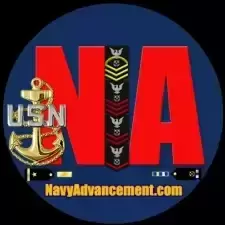RETENTION EXCELLENCE AWARD
-
👉 Latest News
-
NAVAL POSTGRADUATE SCHOOL MASTER'S DEGREE OPPORTUNITY FOR NAVY ENLISTED EXPLOSIVE ORDNANCE DISPOSAL OPERATORS
By Tony, in Navy College Education & Training Forum
- 0 replies
- 196 views
-
Navy Advances No Sailor Lives Afloat Initiative by Expanding Shore Housing Capacity
By Tony, in Enlisted Pay, Benefits & Allowance Forum | Navy
- 0 replies
- 342 views
-
UPDATE TO CHIEF OF NAVAL OPERATIONS DELEGATION OF AWARDING AUTHORITY FOR MILITARY AWARDS
By Tony, in Navy Evals, Awards, PRT, Uniform & Grooming
- 0 replies
- 341 views
-
FY28 ACTIVE-DUTY LIMITED DUTY OFFICER, CHIEF WARRANT OFFICER, AND WARRANT OFFICER IN-SERVICE PROCUREMENT BOARD
By Tony, in Navy Enlisted to Officer Forum | LDO, CWO | Commissioning Programs
- 0 replies
- 353 views
-
ACADEMIC YEAR 2027 NURSE CORPS MEDICAL ENLISTED COMMISSIONING PROGRAM SELECTION BOARD
By Tony, in Navy Enlisted to Officer Forum | LDO, CWO | Commissioning Programs
- 0 replies
- 320 views
-

Recommended Posts
Join the conversation
You can post now and register later. If you have an account, sign in now to post with your account.
Note: Your post will require moderator approval before it will be visible.